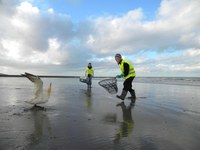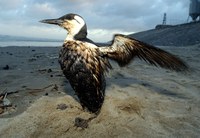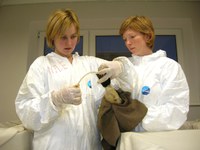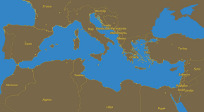Oiled Wildlife Response
The involvement of volunteers has been important in past wildlife responses, reducing the costs of the relatively labour intensive work that is involved. A volunteer can be defined as an individual who desires to assist with the response out of free will and therefore is involved as a member of an unpaid work force and not as an employee.
Health, safety and liability issues must be considered very carefully before involving volunteers in wildlife response activities, particularly if they are members of the general public who offer their labour free of charge but are untrained and not affiliated to any organisation. The deployment of volunteers in national or state oil pollution response will not always be possible or desirable. However, there are examples of NGOs working in close relationship with the authorities using a professional infrastructure for the recruitment, training and supervision of volunteers. If volunteers are to be used their activities must be well planned, coordinated, supervised and fully integrated into the overall oil spill response.
There are different tasks that can be described for volunteers, here presented as categories A-D according to the level of pre-spill training and experience required:
A. Tasks that do not need pre-spill training but require basic on-site training (including health and safety instructions) and relatively light post-training supervision
B. Supporting tasks that need extensive on-site training and post-training supervision
C. Tasks that need extensive pre-spill training and experience (or long time on-site involvement under supervision)
D. Tasks that are closely related with success on the work floor and success of the response as a whole and therefore need extensive pre-spill training and proven experience/accreditation.
The higher level tasks can only be carried out by organisations and individuals that have specialised knowledge and experience in oiled wildlife response and who are accredited by leading wildlife response organisations or by the Incident Commander/Response Manager. The POSOW oiled wildlife package will concentrate on producing materials and training tools for the category B tasks, and an instruction for the appointed individuals who will be responsible for coordinating the mobilisation, training and supervision of volunteers (under category D).





